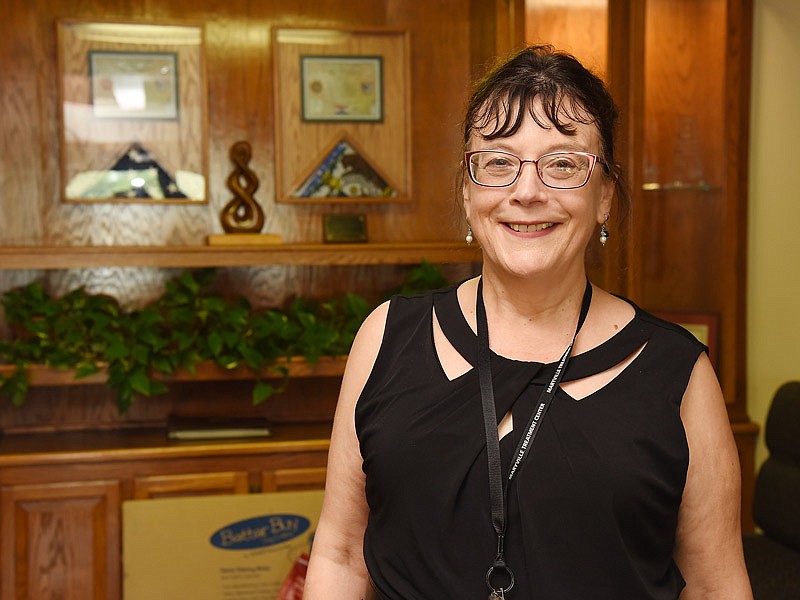For 22 years, Marta Nolin has worked with the Missouri Department of Corrections fulfilling her passion to assist offenders. Nolin currently serves as the assistant division director for offender rehabilitative services in the substance abuse department.
"I'm like many people in Corrections: We didn't plan to get here, but once we did, we felt a passion for assisting offenders," she said.
By profession, Nolin is a psychotherapist. She said her job at the Cremer Therapeutic Community Center in Fulton is where she really became interested in helping offenders.
Cremer Therapeutic Community Center formerly offered a long-term treatment program for women and has since become a men's treatment program, she explained.
"This job heightened my empathy and made me feel like I wanted to be a part of the field," Nolin said. "In this job, I was able to meet people where they were, recognizing that they may not have had some of the same privileges I have had."
When she first moved to DOC as chief of substance abuse disorders, Nolin said, she lost the opportunity to have direct contact with the offenders. However, she soon learned by working in a policy position she can still effect change in a different way.
"I really see myself as a facilitator of the work because it truly is a collaboration among all of the staff that makes the difference," Nolin said.
For example, when she first arrived, there was no department-wide training on documentation, a lack of female leadership and a lack of education on best practices.
Over the years, she has noted changes in the way things are documented, types of programs offered, and the expectation that everyone is affirming and respectful, which has helped make the department more effective.
Moving forward, Nolin said these changes keep her mind on the positive progress demonstrated by the health care professionals in the department.
"Part of what's kept me here is the staff I work with," Nolin said. "They really have a passion for wanting to help people recover and really care about that happening - believing that they can help change lives."
When it comes to the treatment and substance abuse field, Nolin said young professionals need to remain open-minded, keep updated on the research and be willing to accept humility.

